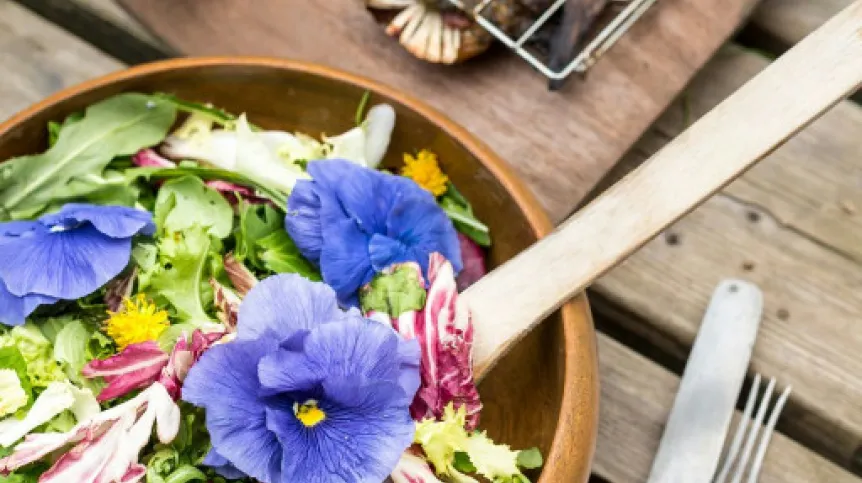
Lively music and bright lights in fast food restaurants are not an accident. They make us eat faster, and when leaving, we make space for the next customers. Small plates in restaurants promote ordering more food. Restaurateurs use a number of traps that make us spend more money than intended.
Going to a restaurant and choosing a particular dish we are usually convinced that we have made the choice independently, based on information available to us, given by the waiter on the menu. Meanwhile, that is not always the case. Quite often, restaurateurs use our natural physiological reactions or susceptibility to manipulation to provoke us to choose specific dishes, eat faster or slower.
"There are physiological and psychological mechanisms that we follow, and the decor of the restaurant allows to control them" - told PAP Dr. Dagmara Stangierska from the Department of Management in Catering and Hotel industry, Faculty of Human Nutrition and Consumer Sciences, Warsaw University of Life Sciences. "In restaurants with a higher standard, you can see many points of light: candles, lamps. The lighting is dispersed and discrete. This means that in such a place customer will stay longer and eat more slowly" - noted the researcher.
The situation is quite different in fast food or milk bars. There, fluorescent lighting is bright, similar to daylight. In this environment, customers are not likely to hang out too long. "The idea is that customers should eat quickly and leave, making space for new customers. This, of course, has its reasons, because in a good restaurant a customer who will stay longer, will leave 150-200 zlotys, and in a fast food restaurant - 10-15 zlotys. If customers stayed for too long, these places would bankrupt"- said Dr. Stangierska.
We are even more "vulnerable" against music played in restaurants. For example, the tempo of music is important. "Fast music makes us eat faster, we are more active. We adjust our speed to the speed of music. Fast food chains often use that" - she said. But restaurants with a higher standard often play classical music. It gives us a sense of luxury, prestige, induces a "snob effect". It makes us want to spend more money on a meal.
However, this element is sometimes completely ignored. "Italian restaurants often play pop music, which are not compatible with the place. Music should be consistent with the type of restaurant. In Italian restaurants we should hear Italian songs, in a French one - French music. Studies show that when we hear Italian music, we are more likely to order Italian food" - she noted.
Some restaurants try to disrupt our sense of self-regulation, which tells us when to stop eating. They do this by serving dishes on small plates and bowls. When we see these small plates, we begin to think that such a small portion will not be enough and order more at once.
Healthy eating is in fashion, which is why many foods are sold under names that are associated with healthy eating. For example, a salad, which should be made primarily of vegetables and light components, is instead made up of pasta and poultry, and vegetables are only an additive.
In the restaurant business, check value and high turnover are also generated by drinks. "They have a high margin, and they are served fast. To increase the amount sold drinks, cooks often intensely spice food with hot spices and lots of salt. Even if we want to avoid this, while we wait for the main dish restaurants often serve snacks, which are also spicy" - explained the researcher.
A very common technique is the dish of the day. "During the hours then there are fewer clients, restaurants try to attract customers using the offer of the day. There are honest places, where the dishes of the day are actually a genuine lunch offer, but there are also those, which try to get rid of products whose shelf life is nearly over, or leftovers from previous days. We should only order the dish of the day in places that we already know and trust" - she said.
A clever tool in the hands of the restaurateurs are also waiters. "Sometimes waiters try to become quiet counsellors, customer\'s friends. They build confidence by selling >secret< knowledge, saying that this or that dish is not the cook\'s strong suit and recommending another. Such confidential information raises our confidence on puts us off guard. But we should keep in mind that waiter\'s help is not free, he is a classic seller, whose task is to encourage us to order specific dishes. In psychology, there is even a term +selfless waiter+" - explained Dr. Stangierska.
We should also remain alert when we ask the waiter to recommend something. "He can recommend something with an attractive price, but then will ask us whether we\'d like French fries with that, or choose a different salad. This way we increase the price of the meal, without even being aware of it. The waiter convinced us to add elements for which we pay extra" - warned the researcher.
PAP - Science and Scholarship in Poland, Ewelina Krajczyńska
ekr/ mrt/
tr. RL













